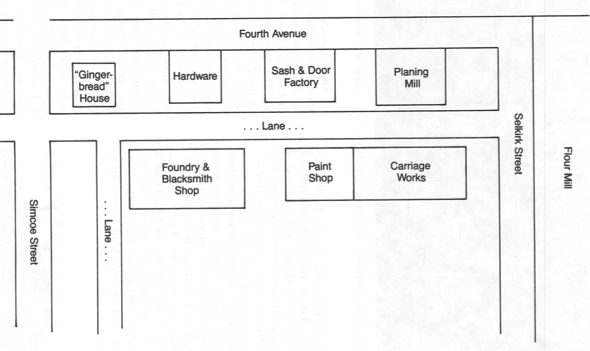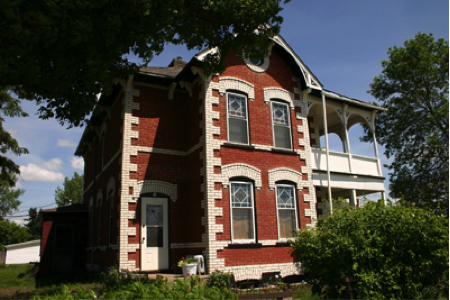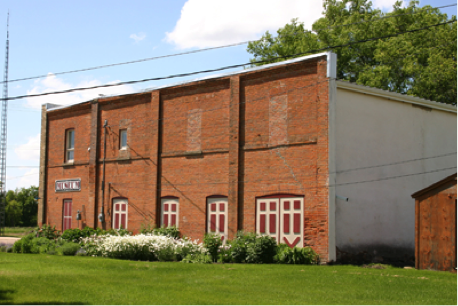|
When James White, his wife
Margaret (MAGGIE), their son Charles and daughter Ettie (aged 13 and 10
respectively), arrived in Carberry in 1902, the town was already a
thriving commercial centre. Established in 1881 with the arrival of the
Canadian Pacific Railway mainline, Carberry was in a stage of maturity
by the 1890s. It boasted a fine railway station, two hotels, many
businesses, a few manufacturing operations, a large school and a
handsome residential district.
So James White was not one of the pioneers of the community in the
technical sense. But he certainly was a local pioneer in his
determination and ability, as he transformed several manufacturing
operations, and introduced new commercial ventures that helped put
Carberry on the map in the early decades of the twentieth century.
Mr. White’s first business venture—the James White Sash and Door
Factory was the kind that typified several small Manitoba towns, but it
turns out that the old White factory (currently used as the Carberry
Plains Museum) is now the only one left.
And so through this very tangible
example we have the opportunity to delve into the life of a fascinating
man, the kind of can-do entrepreneurs who defined places like Carberry
in their formative years. And the building obviously also allows for a
detailed exploration of this important representative of the kinds of
early manufacturing operations that defined several Manitoba towns at
the turn of the twentieth century
James was born in Ontario in 1861. He was a businessman,
inventor, and contractor. His business interests included the Sash and
Door Factory, Planing Mill, Hardware Store, Carriage Works, Paint Shop,
Foundry and a Blacksmith Shop. He is responsible for some notable brick
churches and many fine homes in the town.
When the cornerstone of St. Agnes’s Anglican Church, for which he was
contractor, was laid on August 27, 1902, notables present included Hon.
Rodmond P. Roblin, Premier of Manitoba.

The carriage Shop turned out
buggies and cutters; the Foundry made parts for machinery. Later he
turned the Sash and Door Factory into a Garage and even had an elevator
that would lift cars to the second story for a paint job.
In 1900 he built the "Gingerbread House", which was his residence.
There are only three similar houses in Canada and it has been featured
in Westman Tourist Guide and is a tourist attraction today. The house
is unique for intricacy and extensive use of lacy swirls, fancy brick
work and fret work.
Besides all these projects, he built St. Agnes Anglican Church and
Rectory in 1902; the Methodist Church (Now United) at a cost of $9,000
in 1903; the Presbyterian Church in 1909 (at cost of $13,000.); and a
two storey brick block on south Main Street. All are beautiful
monuments to the builder.

The Gingerbread House” – James White’s Residence

The Sash and Door Factory – Now the Carberry Museum
|





